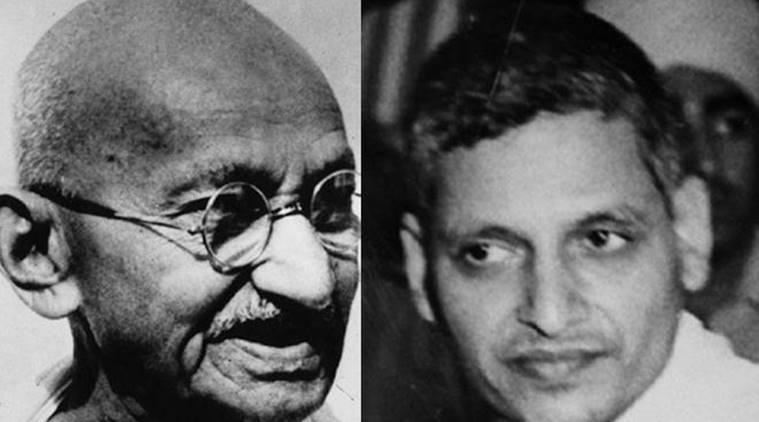
On the eve of the 154th birth anniversary of a great leader, thinker, reformer, legal expert, freedom fighter, a true Swadeshi, and a champion for the poor and marginalised, Mohan Das Karamchand Gandhi is becoming more relevant in the process, despite attempts to make him less relevant. The buzzword Swachha Bharat remains a-swachh (unclean) when the Bharat and the eyeglasses of the father of the nation are kept apart. Mahatma Gandhi always lived and worked for others, whether practising the legal profession at Durban and Johannesburg in South Africa or after returning to India and putting himself into more civil society-related works and engaging to add his value towards the freedom movement from the colonial empire.
India, a nation that has been carrying the burden of caste-based atrocities, caste-based occupation, caste-based identity, caste-based social status, caste-based food culture, caste-based religious rituals, caste-based centres of worship, caste-based political associations, etc.—much has changed over the last seven decades of India’s independence, but least in the areas mentioned above of life. And almost minimal change is brought about by caste-based occupational associations. Billion-rupee policy intervention in the name of the Clean India Mission (SBM) shows a crude reality of how challenging it is to address the question of sanitation and cleaning of sewerage and night soil.
It is also ironic to see how social scientists in India view a system that remains essentially unequal and discriminatory. The functional structure based on caste-based occupation provides a comfortable system of occupational division wherein, except for cleaning toilets and deep manholes, most traditional occupations receive newer employees from other castes. Indian sociologists mostly overused the idea of functional theories in order to understand the caste structure. They underestimated the nuances that could have helped to examine the inequalities rooted in the caste system.
Any such mega policies like SBM in India aim to address the socio-cultural and economic inequalities of the society, which is considered a desirable goal and rationale intention. Still, one does worry whether the goals are correctly directed, or it is a capital and gain-oriented initiative. No data supported a strong case of SBM bringing desirable change into the lives of the people engaged in this menial occupation for generations.
Cleaning the cities, but not the mindset
The programme of the Swachh Bharat initiative encompasses the eradication of open defecation through the construction of toilets owned by households and communities, as well as the implementation of waste management and sewage treatment systems. The objective is aligned with India’s pursuit of Sustainable Development Goal 6 (SDG 6), as set forward by the United Nations in 2015. This is what the Government of India thought when it launched the scheme on October 2, 2014, and the brand idea was championed in all sectors of society and institutions.
What has changed in the working pattern of the menial job workers who had been doing sanitation jobs as their family and caste-based occupation is that the jobs in most of the country’s municipal corporations turn out to be contractual in nature and outsourced at many corporation cities. Every year, the showcase photographs show workers getting gloves and equipment in the name of safety tools, but no study has proven that the safety net saved these workers from dying inside the manholes.
Swachh Bharat Mission (SBM) wanted to eradicate manual scavenging and all manual handling of night soils and filthy jobs by rehabilitating the workers in this caste-based occupation and making it a skill-based occupation wherein anyone needing a job could join it. It also wanted to eradicate open defection to minimise the infection and spread of communicable diseases due to polluting water and groundwater sources. It also aimed to clean the city by removing filth and garbage and keeping the environment hygienic and healthy. The list goes on in this direction, which can really bring so much happiness and a sense of satisfaction that was aimed at through a national policy SBM.
Has there been a decrease in the deaths of workers in the lowest caste groups in almost every news story when the government denies them being employees at the corporation? It is simple that such workers are not employees of corporations and are hired through contractors and other agencies to clean and carry tonnes of garbage outside the city to keep the surroundings clean and hygienic. But do these workers feel clean and live healthy and hygienic lives? Does any social structure provide them equal space and guarantee socio-cultural participation in almost all socio-religious and cultural spheres of life? A big no is the only answer in this direction.
A lot of critical studies are needed to understand the transformation brought in by SBM into the lives and livelihoods of the workers in this caste-based occupation for years and years. A mega policy scheme, SBM, began with a shared financial responsibility between the central and state governments. Still, none has shared the burden of increasing the livelihood conditions of conservancy workers. Nobody thinks about and acts upon the continued stigmatised lifeworld lived by sanitation workers. The data may be attractive and progressive that a vast landscape of the country has been freed from open defecation, but have the states freed the sanitation workers from the clutches of caste bondages and caste orders in India? Who will rename the workers by giving them a caste identity with higher social status and privilege? The answer is no one. However, very few entrants are found among the cleaning workers in the various municipalities nationwide. The data from Jharkhand and Telangana substantiate that most sanitation workers belong to low-caste Dalit families (mostly ex-untouchables). However, none of the government officials would admit to giving caste-based details for their own reasons.
A recent ongoing study on sanitation workers in India revealed data indicating that the lifeworld of the workers is at a margin and crossroads. A state with the highest economic progress and another lagging in economic prosperity has a candid similarity in carrying the traditional caste-based occupation associated with the lowest caste-based families and finds itself absolutely helpless in addressing the eradication of caste-based occupational identity, a dot in the face of a promising country when everyone celebrates Mahatma Gandhi and his vision of cleanliness. India adores the culture of cleaning the soul, mind, and body by not doing any unclean job, thereby keeping the bodies and minds of those souls that clean the society and cities every day and in every municipality of the country. Alas, such a dichotomy exists in human life, but it remains.
Dr. Khwaja Mohd. Ziyauddin teaches sociology and is an Associate Professor in the Department of Sociology at Maulana Azad National Urdu University, Hyderabad. He is a co-founder of The Democracy Dialogue, India, and an alumnus of IVLP of the Department of the States, USA. His research interests involve Dalit studies, occupation and caste, public health, questions of minorities and citizenship, gender politics, and ethnographic research. He has been working on democratising the research space inside and outside the institutions. Ziyauddin, a profound researcher by training, also serves on the editorial board and is a member of several reputed journals. He has published dozens of peer-reviewed research papers and books in international and national publications. He also writes opinion pieces for various popular news channels and portals. This write-up is part of the significant ongoing research in two states of India, Telangana and Jharkhand, wholly sponsored by ICSSR, New Delhi. He may be contacted at [email protected].













































